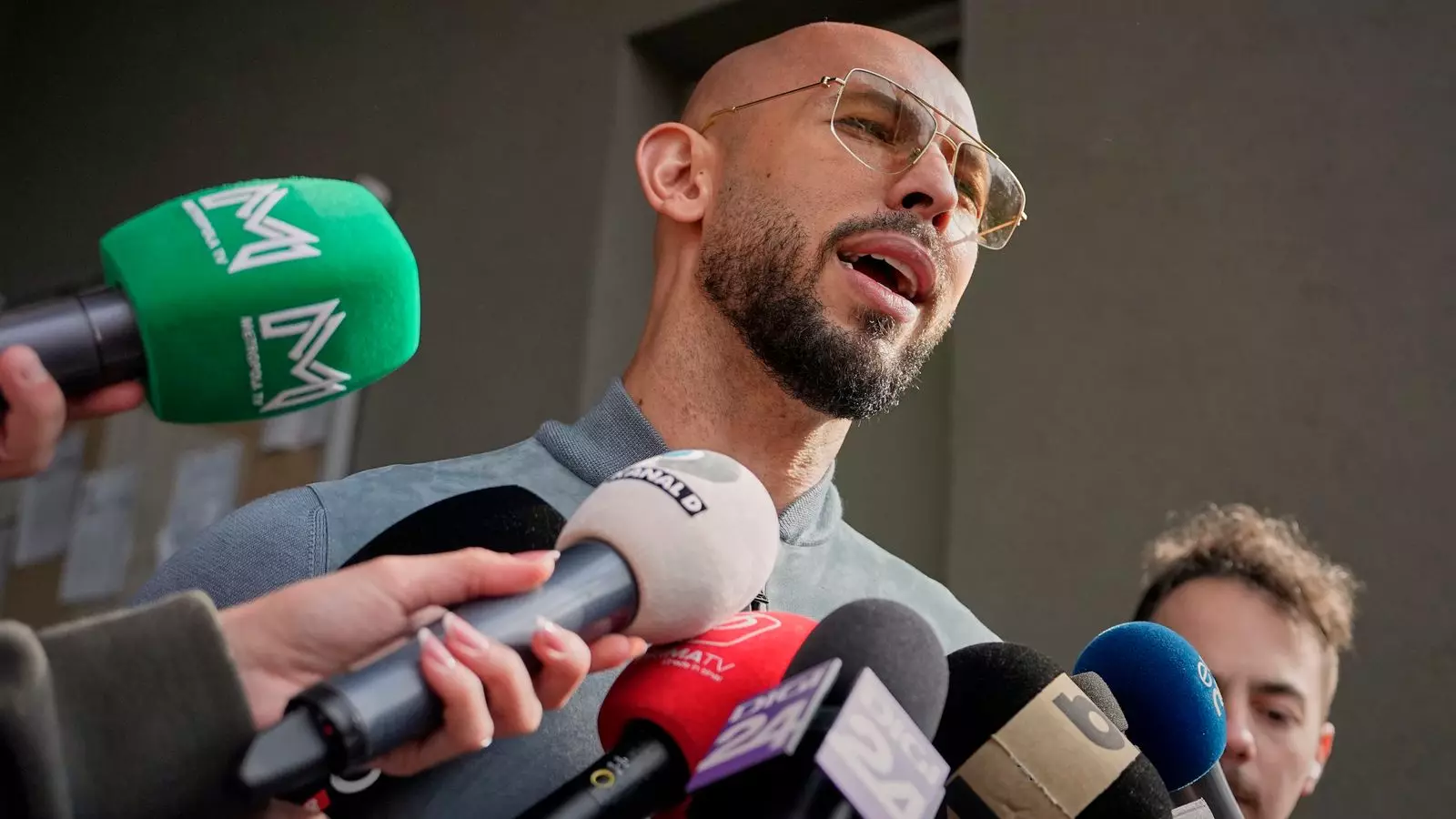The pervasive nature of social media has opened the gates to a troubling paradigm where misogyny and sexism thrive, particularly in the UK’s educational institutions. Teachers have reported alarming trends, revealing a significant correlation between the rise of social media figures and a decline in respectful interactions amongst students. A recent poll conducted by the NASUWT teaching union uncovered that 59% of the educators surveyed believe that social media is dangerously influencing student behavior. This is not just a mere statistic; it points towards a disturbing infiltration of negative ideologies that prioritize toxic masculinity over essential human values.
Social media influencers, often glamorized and idolized by audiences lacking critical media literacy, have become the new gatekeepers of young minds. Figures like Andrew Tate have leveraged their platform to disseminate harmful narratives about gender dynamics. Teachers have cited specific incidents where young boys, as young as ten, openly reject female authority or display overtly misogynistic behavior, reflecting the warped lessons gleaned from viral online content. These revelations underscore an urgent call to arms: if we do not intervene, we risk normalizing a culture defined by disrespect and discrimination.
The Danger of Far-Right Rhetoric
In recent discussions, educators have expressed profound concerns over the far-right and populist rhetoric permeating our schools. One motion being debated at a significant teaching conference seeks to address this very issue, exemplifying the immediate need for proactive measures. It is imperative that educational authorities collaborate with teachers and mental health professionals to confront the powerful narratives emanating from these movements. What does it mean when children internalize the belief that hyper-masculinity equates to superiority? It erodes the foundations of respect and equality that should permeate our educational systems.
The dangers posed by such ideologies extend beyond mere classroom dynamics; they risk shaping the societal attitudes of an entire generation. When influential figures endorse derogatory views on women, perpetuated through streams of digestible social media content, they fuel a fire that can easily spread, influencing both peer interactions and familial relationships. The need for a robust educational framework that includes critical discussions about gender, respect, and equality has never been more urgent. Educators must empower students to critically analyze the content they consume, rather than allowing them to be passive recipients of harmful narratives.
Politics, Policy, and the Quest for Solutions
Political leaders are starting to grapple with the implications of social media’s influence, as demonstrated by recent discussions held at Downing Street. Prime Minister Sir Keir Starmer’s call to action against the burgeoning “whirlpool of hatred and misogyny” is a noteworthy step, yet it begs the question: will these discussions translate into meaningful policy change? Conservative leader Kemi Badenoch has shared personal anecdotes concerning the perils of online content, illustrating a human side to what can often seem like abstract political debates. When political motivations intersect with personal experiences, it challenges the system to take decisive action.
The proposed ban on mobile phones in schools is undoubtedly one approach to mitigate social media’s influence. Still, we must transcend tokenism and engage in deeper systemic reform. We need a holistic strategy that emphasizes not only the rules but also the conversations that need to take place around technological addiction and online behavior. The Department for Education has expressed that education is the antidote to hate, but this ideal can only be realized when educators are adequately equipped and supported to tackle these pressing issues head-on.
A collective movement involving educators, policymakers, and communities must arise to foster environments where children can thrive free from the corrosive effects of misogyny. The current landscape presents an urgent call for participatory dialogues in classrooms aimed at reframing narratives surrounding masculinity and, by extension, humanity as a whole.
In an era where social media has become the sword and shield of societal influence, we must not underestimate its capacity to harm. As we stand at the precipice of potential change, we must summon the courage to demand a safe and respectful digital landscape for future generations.

